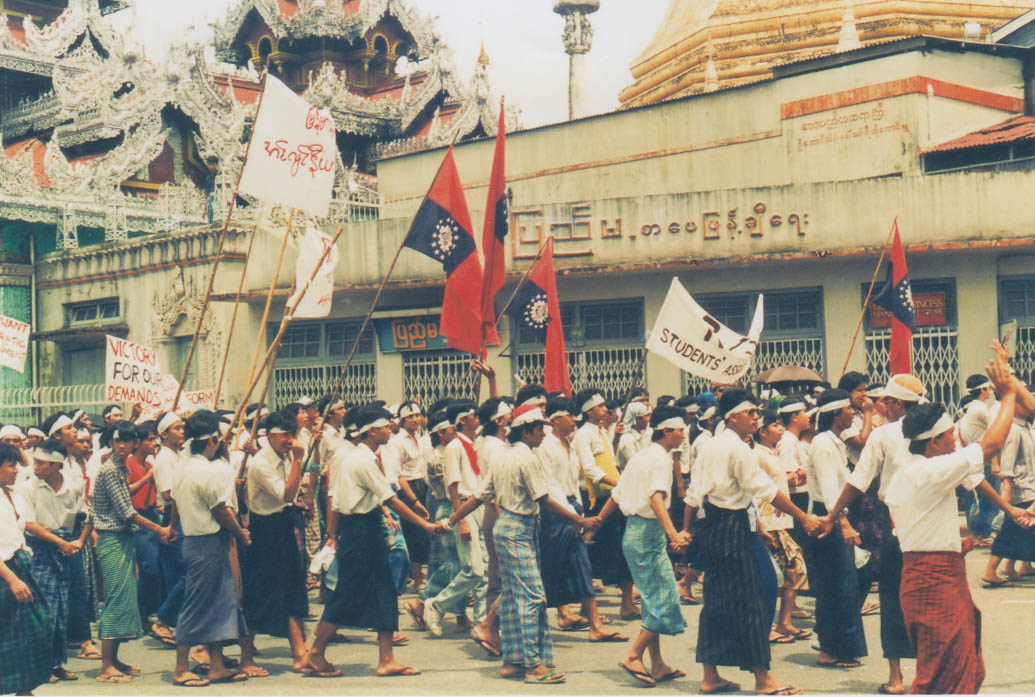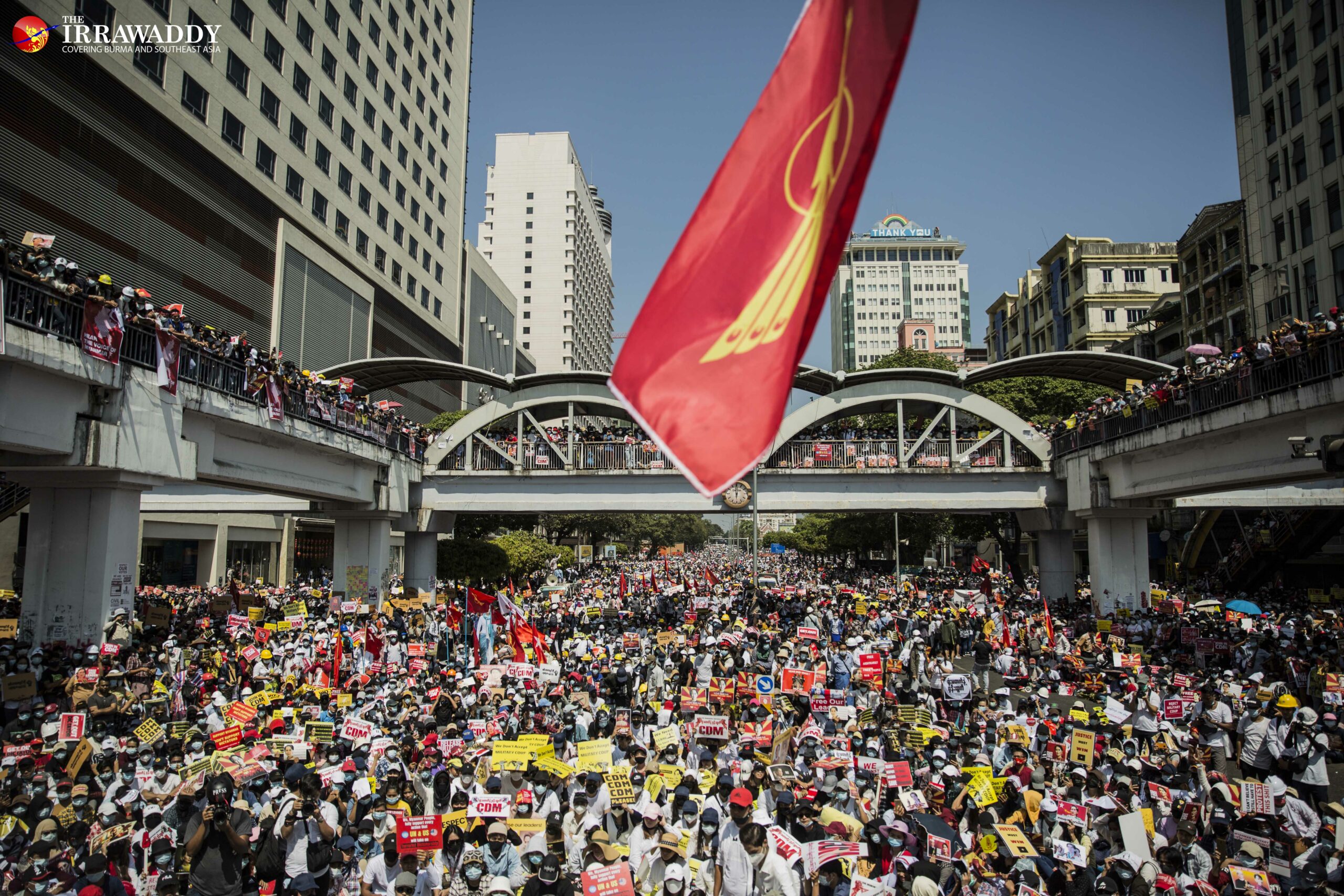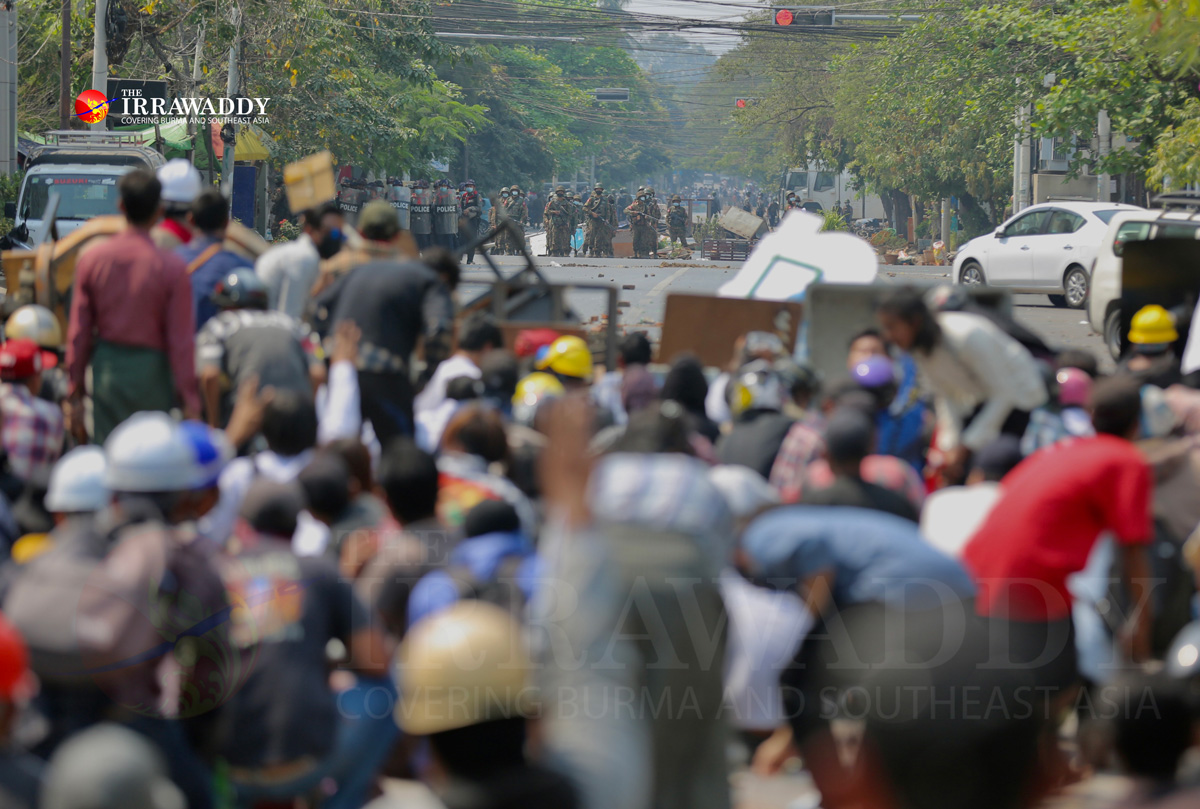I and many other journalists who covered the 1988 pro-democracy uprising felt a sense of déjà vu when, once again, the Tatmadaw’s tanks rolled into major cities and cracked down brutally on protesters while some embittered activists took to the borders to fight and to form a government working mostly in exile. Is it happening again? Will there be another few decades of harsh military rule, resistance and suffering? Will the men in green ever come to their senses and realize that they are destroying the country, not “saving” it?
On closer reflection, however, there are some fundamental differences between the situation today and that of 33 years ago. First of all, digital media has changed the world, and Myanmar is no exception. In 1988, the internet and smartphones did not exist and we who covered the uprising from Bangkok had to depend on shaky and often faulty landlines. It all began on Aug. 8,1988—hence “8888”—with massive demonstrations all over the country. The military was called out to suppress the uprising and did so brutally. Thousands of people—yes, thousands, not hundreds as some chroniclers claim—were gunned down in the then capital Yangon and elsewhere. When that failed to cow the public into submission, the Tatmadaw withdrew from the streets and public view, hoping that it would create the kind of chaos it would need to step in and “restore order”. And that was exactly what it did on Sept. 18, when a junta called the State Law and Order Restoration Council (SLORC) assumed power and another massacre of protesters took place.
During that month, from mid-August to Sept. 18, Myanmar actually enjoyed its first month of intellectual freedom since the initial military takeover in 1962. After more than two decades of strict governmental control of the media, new lively papers emerged, some daily and others intermittent. By the end of August, Yangon alone had nearly 40 independent newspapers, magazines and journals full of political commentaries, biting satires and cartoons ridiculing the ruling elite. They had fanciful titles such as the Light of Dawn, Liberation Daily, Scoop, New Victory, the Newsletter and so on. Some were handwritten and photocopied or mimeographed, while others had access to professional printing presses, often free of charge because their owners wanted to show that they also supported the movement for democracy.
Despite the use of English titles for many of the publications, they were in the Burmese language, published locally in Yangon, Mandalay, Mawlamyine, Pathein and elsewhere, and it was rare that the information they contained reached the outside world. The same was true of photographic images. Many Myanmar photographers took excellent pictures and those were also published locally. One of them is Htein Win, and thanks to him there is evidence of the events of 1988. An experienced photographer, in 1974 Htein Win had also photographed the student demonstrations triggered by the funeral of the Myanmar former secretary general of the United Nations, U Thant.

But very few international press photographers were inside the country, among them Alain Evrard from Belgium and a Japanese photographer who used the name Ryo Takeda. Takeda photographed demonstrators kneeling before soldiers and urging them not to shoot, while Evrard took the most iconic picture of the suppression of the 1988 uprising: a shot of a Tatmadaw officer leading an attack on a group of demonstrators — and soldiers carrying guns with bayonets charging the crowd. Evrard had to hide his film rolls in his underpants and smuggle them out of Myanmar. Once in Bangkok, days after the event, he could have his film developed and prints made. A few videotapes, all on VHS, also reached Bangkok, but they were of very poor quality.
Sporadic demonstrations continued for a while after the formation of the SLORC and the imposition of draconian martial law measures, but the Tatmadaw was soon in near-total control of cities and towns and even major villages. But an estimated 10,000 activists, most of them young, fled to areas along Myanmar’s borders which were under the control of various ethnic rebel armies. On November 1, they formed the All Burma Students Democratic Front and organized themselves along military lines and dressed up in uniforms with insignia. The hope was that they, together with their ethnic allies, would defeat the Tatmadaw militarily.
Then came the May 1990 election, which, to the surprise of many, was free and fair. The National League for Democracy (NLD) scored a landslide victory, capturing 392 of the 485 seats that were up for grabs (of a total of 492; elections were not held in seven constituencies) while the Tatmadaw-supported National Unity Party scored a mere 10 seats. But that Pyithu Hluttaw, or National Assembly, was never convened. Instead, the SLORC eventually decided to form a constituent assembly consisting of about a hundred MPs-elect and 600 delegates handpicked by the Tatmadaw.
When it became clear a couple of months after the May 1990 election that the SLORC was not going to honor the outcome and began arresting MPs-elect, some fled to the Thai border along with other NLD activists. In December 1990, they formed what they called the National Coalition Government of the Union of Burma (NCGUB) with Daw Aung San Suu Kyi’s cousin U Sein Win, an elected MP, as prime minister. A loose alliance was formed with the ABSDF and some of the ethnic rebels.

Internationally, there was widespread condemnation of the mass killings and arrests in 1988 as well as the SLORC’s decision to ignore the results of the 1990 election. But, at that time, there were almost no foreign investors in Myanmar. One of the few was Fritz Werner Industrie-Ausrüstungen, a German firm that was involved in arms production and had personal connections with the then dictator General Ne Win. There was, in other words, very little at stake economically for the outside world, including Myanmar’s immediate neighbors.
Looking back at those events which took place three decades ago, it is evident that we are now dealing with an entirely new situation with different dynamics internally, regionally and internationally. After the 2010 election, the Tatmadaw decided to allow a high degree of freedom of expression, and that lasted until the Feb. 1 coup. But during those 10 years, tech-savvy young people known as Generation Z became masters at using the internet—and many of them are still active after the coup. Today, nothing happens in Myanmar without it being disseminated worldwide on Facebook and other social media. People also communicate with each other relatively safely via digital platforms, some of which are encrypted. In real, crude and brutal terms, more people were gunned down by the Tatmadaw in 1988 than today, but the documentary evidence was never there.
Some, but not as many as in 1988, have resorted to armed struggle—but in a way that Myanmar has not seen in recent history. The military-structured ABSDF soon fell apart because of factional infighting, some resulting in activists killing other activists. There was an acute shortage of weapons and even medical supplies. Many fell sick with malaria and other diseases contracted in the jungle. The dream of an armed uprising from the borders never materialized. The erstwhile ABSDF militants trickled back to their old hometowns, or ended up in exile in the US, Australia and Europe.
This time, there is armed resistance as well, but it includes urban guerrilla warfare of a kind not seen in Myanmar before. Bombs are exploding on an almost daily basis in cities and towns all over the country, even in the old capital Yangon and the new one, Naypyitaw. Suspected Tatmadaw informants are being assassinated and militants are blowing up military-owned property like Mytel communication towers. Local resistance forces, which are active also in the Burman-dominated heartland, have ambushed Tatmadaw convoys with guns and homemade bombs. And the Tatmadaw today is no longer the highly disciplined fighting force it was in the 1980s and before. Judging from reports from inside the country—and then not only from internet activists—the Tatmadaw has suffered heavy casualties with hundreds of dead and many more wounded.

Furthermore, the old NCGUB never managed to attract anything that could be interpreted as recognition. It became redundant after 2010 and was dissolved two years later. The new National Unity Government (NUG) has the backing of several MPs who, unlike those in 1990, have actually served as MPs, and that of Myanmar’s representative to the United Nations, U Kyaw Moe Tun. Informal meetings have been held with representatives of foreign governments. On Oct. 5, the French Senate extended what can be seen as a recognition of the NUG, and the European Parliament passed a similar resolution a day later. And, as The Irrawaddy reported on Oct. 6, Malaysian Foreign Minister Saifuddin Abdullah has issued a warning to the junta in Naypyitaw, the State Administration Council (SAC), that his country will hold talks with the NUG if the generals fail to cooperate with a recently appointed special envoy of ASEAN, of which Myanmar is a fellow member.
But the deciding factors could be what certainly did not exist in 1988: a once thriving local business environment and foreign investors. Strikes and military crackdowns have been bad for business. The World Bank forecasts in its July report an 18 percent annual decline for Myanmar’s economy, nearly double what was predicted in March. Other estimates are even more dire; Global credit rating agency Fitch Solutions, for instance, expects a contraction of 20 percent or more. In short, the economy is on the verge of collapse, and the blame for that lies entirely with Senior General Min Aung Hlaing’s decision to oust the elected government and seize absolute power.

Regional trading partners like ASEAN and China may not care about democracy and human rights, but they don’t want to see their investments go up in smoke over the Myanmar battlefield. China has invested heavily in Myanmar’s fledgling industry and in infrastructure projects such as a deep-sea port at Kyaukphyu, Rakhine State. High-speed railroads are on the drawing board, and so are plans to dredge the Irrawaddy River for trade. Chaos is the last thing the Chinese would want to see in Myanmar.
Singapore exported US$2.7 billion worth of goods to Myanmar in 2020, mainly mineral fuels, oil, electronics and machinery. Trade with Vietnam was also booming before the coup and Vietnamese companies have invested in real estate and a huge new shopping mall in Yangon. Mytel is a joint venture between Tatmadaw-controlled Myanmar Economic Corporation and Viettel, which is owned by the Vietnamese military. Vietnam, hardly a democracy, would not normally have cared about a military takeover in a foreign country, but the Vietnamese can hardly be pleased to see their co-owned communication towers being blown up, and other investments being ruined because of the coup.
So will the new junta survive? The old SLORC was never under the same pressure at home or internationally as the SAC. But, in the end, it depends on what will happen inside the Tatmadaw when—and it seems inevitable—Myanmar sinks even deeper into economic, social and political crisis. But what will come in place of SAC, if it falls, is impossible to predict. What can be said with certainty, though, is that Min Aung Hlaing and his henchmen had probably not anticipated any of this when they decided to launch their ill-fated coup on Feb. 1. What the generals could get away with in 1988 is not possible in 2021.
Bertil Lintner is a Swedish journalist, author and strategic consultant who has been writing about Asia for nearly four decades.
You may also like these stories:
Ethnic Wa Party Chief Resigns After Pledging to Cooperate With Myanmar Junta
54 Years on, ASEAN Looking Increasingly Ineffectual
Myanmar’s Military Chief Staged a Coup. But He Did Not Act Alone
















